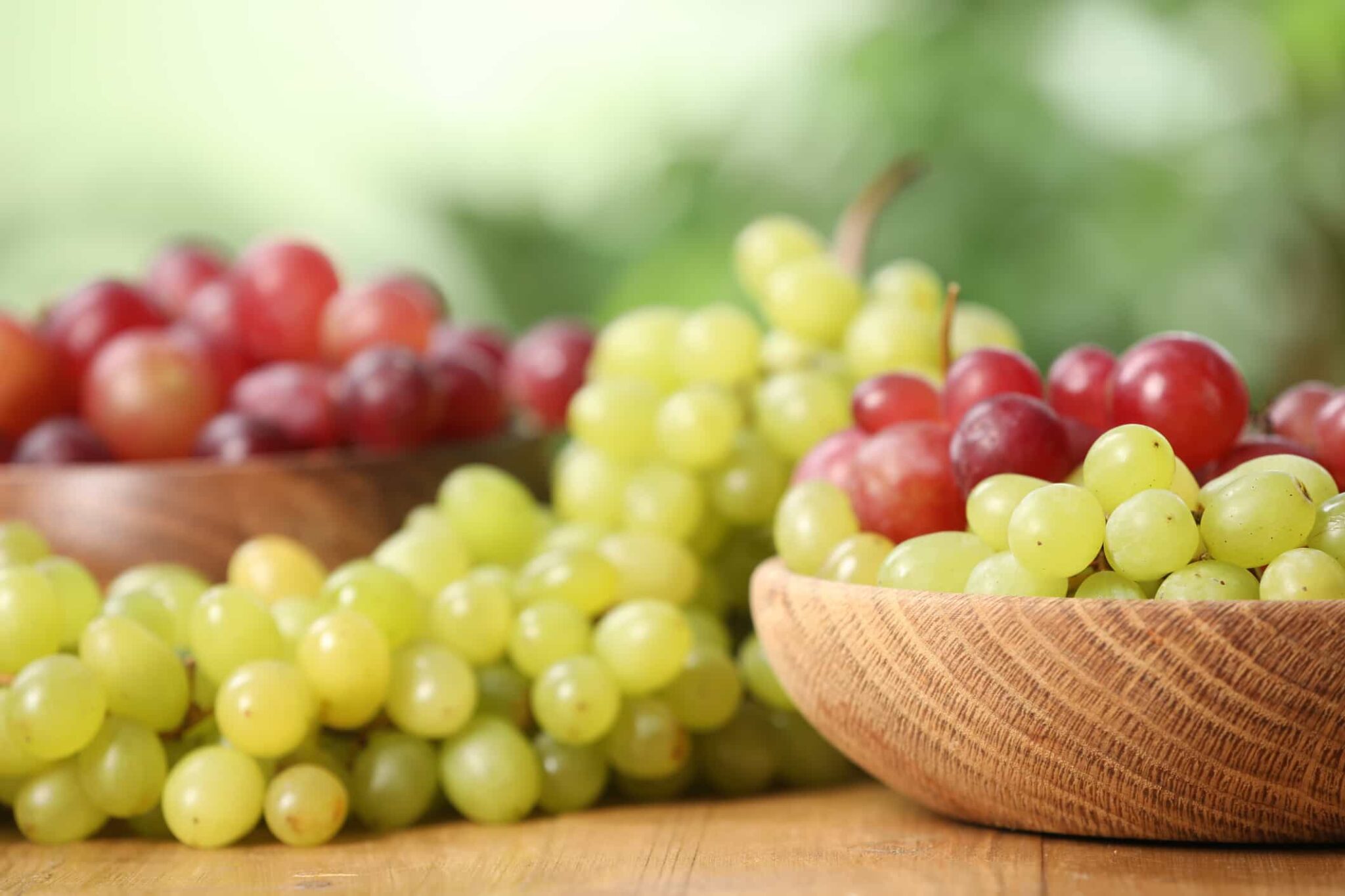
Introduction: Grapes and CKD
Grapes are a sweet, hydrating fruit that can be enjoyed fresh, juiced, or dried into raisins, making them a favorite in many diets. Not only are they tasty, but grapes also offer antioxidants and hydration, which are beneficial for kidney health. In this article, we’ll explore why grapes can be a kidney-friendly option and how they fit into a renal diet.
Kidney Nutrition: Grapes
Potassium: are grapes high in potassium?
Grapes are lower in potassium [1] and can be a good option for those following a kidney-friendly diet, as they are relatively low in potassium compared to many other fruits. This makes them a suitable choice for individuals managing chronic kidney disease (CKD) who need to limit potassium intake.
With ~144 mg of potassium per one-half cup [2] , grapes offer a sweet, hydrating snack that provides antioxidants without posing a risk of high potassium levels.
However, portion control is still essential to maintain balanced potassium levels, especially in later stages of CKD.
Phosphorus: How Much Phosphorus is in Grapes?
Grapes are also a good choice for kidney-friendly diets when it comes to phosphorus management. They are naturally low in phosphorus, with ~15 mg of potassium per one-half cup [2], making them a safe fruit option for those with chronic kidney disease (CKD) who need to limit their phosphorus intake.
Sodium: Is there Sodium in Grapes?
Naturally low in sodium, with ~2 mg of potassium [2], grapes allow individuals with chronic kidney disease (CKD) to enjoy a flavorful snack without the risk of increasing their sodium levels.
Ways to add grapes to your meals
- Grapes are a versatile fruit that can be enjoyed in many ways: fresh, frozen, juiced, or dried as raisins.
- This juicy fruit pairs well with both sweet and savory dishes, making it an ideal addition to salads, cheese platters, or even cooked sauces.
- Grapes are often used in jams, jellies, or as a topping for yogurt and oatmeal.
- You can find them fresh year-round in most grocery stores, making them a convenient, go-to snack or recipe ingredient.
Our favorite pairings with grapes:
- Side dish for a sandwich lunch
- Used in chickpea “eggless” salads
- As a salad topping
- As a snack
Zhaoping Li, MD, PhD, chief of the division of clinical nutrition at UCLA Health, says grapes have proven to be a more efficient way to lower cholesterol than many of the processed foods that promise the same result. And that’s not the only health benefit of the grape. [3]
Kidney-Friendly Recipes Using Grapes
Here is a list of kidney-friendly recipes that use grapes:
Conclusion
Grapes are an excellent option for anyone looking to make a healthy choice for their kidneys. This sweet fruit is a staple in many traditional dishes and offers a refreshing, kidney-friendly alternative for those managing kidney disease. With their natural sweetness and versatility, grapes can be enjoyed on their own or added to salads, yogurt, and more. Check out our other kidney-friendly recipes here!



